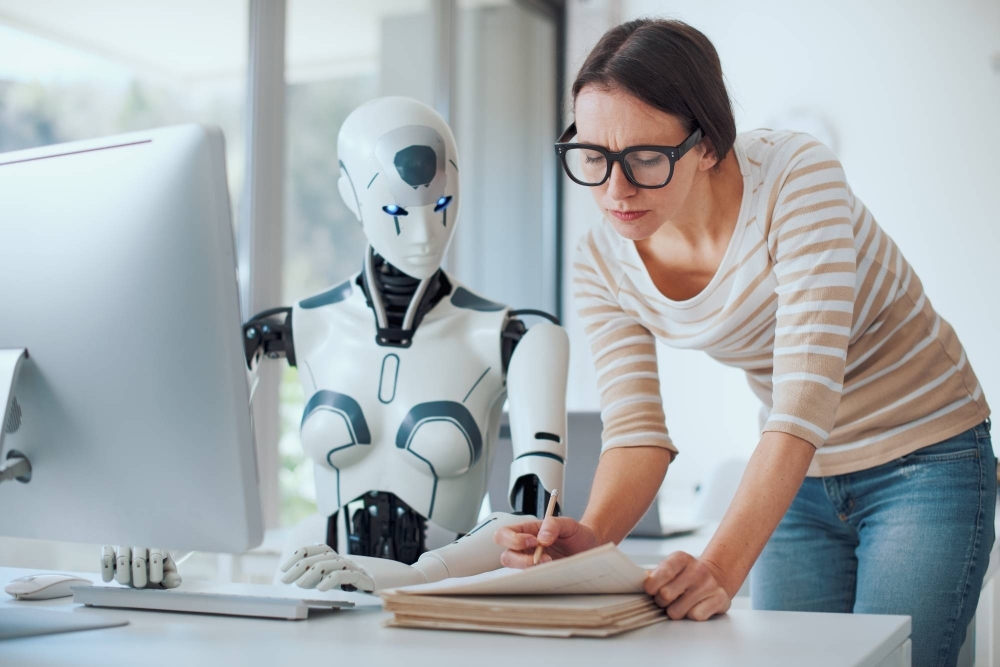Disruptive technologies are rarely welcomed by workers or others with a significant stake in the status quo. Innovation requires adaptation — and adaptation is costly.
Powerful incumbents’ resistance to revolutionary technologies has been a major factor in past periods of stagnant growth. Predictably, the initial enthusiasm for generative artificial intelligence following ChatGPT’s release last year has given way to fears of technological unemployment.
No one expects disruption caused by AI to be minor. According to Goldman Sachs, “generative AI could substitute up to one-fourth of current work” in Europe and the United States, with administrative and legal professions being more exposed than physically intensive ones such as construction and maintenance.



